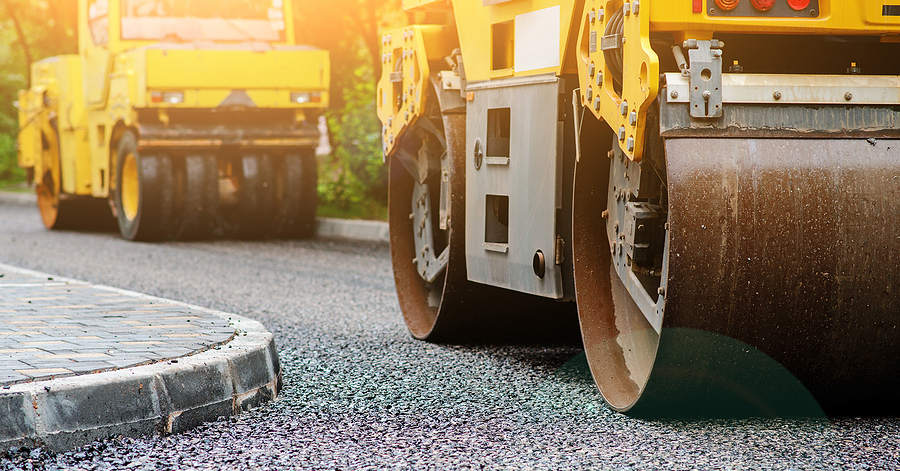What’s the difference between driveway resurfacing and driveway patching?
Blacktop resurfacing is a process whereby a new layer of asphalt is installed over an existing blacktop surface. Resurfacing isn’t the same as completely replacing the surface – that’s why it costs less than driveway replacement.
The patching process repairs potholes or cracks in the driveway surface.
Should I patch my driveway or resurface it?
If your driveway shows signs of age and use, it’s important to take action promptly. Otherwise, you may be faced with completely replacing the driveway.
If you have a small amount of damage, patching is appropriate. You can fill potholes or repair cracks in asphalt or concrete if the damage is extensive.
A good rule of thumb is to make repairs in the form of patching if the damage impacts 25% of the driveway or less. If more than 25% of the driveway surface is damaged, driveway resurfacing is more appropriate.
What is the driveway resurfacing process?
If you have an asphalt driveway, the asphalt surfaced will be cleaned to prepare it for resurfacing. Depending on the driveway, milling (a process to remove partial layer of blacktop) may be performed on the edges and transitions only or on the entire surface. When you hire PALERMO PAVING for driveway resurfacing, our paving experts will determine how much of the driveway must be milled if any. After milling, a tack coat is applied to the areas to be resurfaced and then hot-mix asphalt is spread and compacted.
Can driveway resurfacing be performed in the Winter?
It depends on the weather and the type of driveway resurfacing to be performed. Long Island winters are generally cold but not frigid.
If the ground is not frozen, a gravel driveway resurfacing is possible.
Because asphalt driveway resurfacing utilizes hot-mix asphalt, the temperatures must be no lower than 55°F during the day and night for 2 or 3 days and the ground must not be frozen.
When is the best time for driveway resurfacing?
Spring and Fall are ideal seasons for driveway resurfacing. The temperatures are mild, the ground is not frozen, and resurfacing materials can properly harden and cure.
Summer temperatures on Long Island are not extreme, but humidity levels can be high, preventing paving materials other than gravel to cure and harden more slowly.
How do you know if it is time to resurface your asphalt driveway?
Does your asphalt driveway have large cracks or numerous potholes? Does the surface resemble the skin of an alligator? Then it is time to call PALERMO PAVING for asphalt driveway consultation. Our experienced and trusted team will determine if the driveway is suitable for a resurface, or it needs a brand new start.
Why is driveway resurfacing necessary?
Cracks and holes in your driveway paving material are more than an eyesore. They allow water to penetrate the paving material and further damage the driveway.
Water is an incredibly destructive force and left unchecked can destroy the entire driveway.
Resurfacing restores the integrity of your driveway and prevents further damage. It is an effective and economical alternative to having a new driveway installed.
Does driveway resurfacing correct drainage problems?
Not necessarily. If water isn’t draining from your driveway, but stands in puddles and ponds, the slope is not correct.
Resurfacing might not correct the slope.
If you have drainage problems, it is best to have paving experts like those at PALERMO PAVING correct the drainage problems before addressing the driveway. Dry wells, French drains, and other water mitigation tactics can keep your driveway high and dry.

